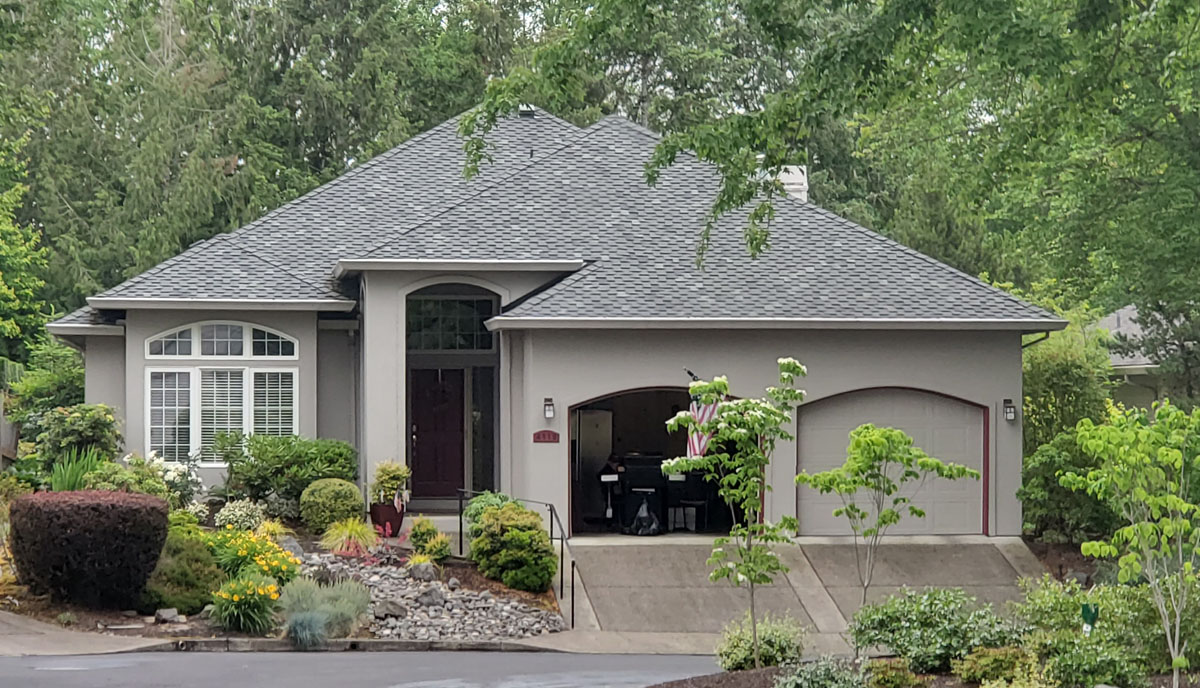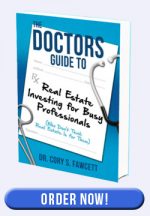So, you want to invest in real estate, which I believe is the best investment you can make. Once you have found a property you want in your portfolio, completed a cash flow evaluation on the property, considered the financing, and it all looks good, you are ready to make an offer.
Many real estate books and influencers encourage you to make a lot of “lowball” offers in search of a “great bargain” you can brag about. You might hear things like, “It takes 20-30 offers before you get a yes,” or “You’ve got to throw a lot of mud on the wall and see what sticks.” I disagree with this approach to real estate investing. This is actually just bargain hunting and is similar to going to many garage sales looking for something where the seller doesn’t realize the true value. Speculators tend to use this method, as they are after short-term profits. This greediness will cost you a lot in wasted time.
As a busy professional, you can’t afford the time it takes to make lots of offers in search of a bargain. This very factor may be what keeps many professionals from directly investing in real estate. What you need to do is look for valuable long-term investments, not bargains. Bargains are for flippers. Bargains are simply a bonus to a busy professional, not a dealmaker.
There are two kinds of investment real estate owners; speculators and investors
Let’s go back in time and imagine a real estate investor struggling with making a lowball offer in 1975. The median home value in 1970 was around $17,000 and in 1980 it was around $47,200. Today, the median price is in the neighborhood of $440,000.
It’s now 1975 and you are standing by the water cooler, talking with someone who is considering making her first real estate investment. The market in your area went up last year, so the median price in your area is $30,000.
The discussion is about whether or not now is the time to buy. Should you wait a little longer or strike now? What if the market drops next year? Then it would have been better to wait and buy the property next year.
At the time of this discussion, whether you bought a property at $20,000 or $30,000 seemed like a big deal. If you were right and the property dropped 30% in value and you picked it up at the lower price, wouldn’t that be a great deal?
The answer is maybe. It doesn’t matter that much if you buy it at $20,000 or $30,000. What matters is that when you buy it, you can make a positive cash flow from the investment and it is now in your portfolio. You own it, it is making money, and you intend to own it for a very long time.
If you had been a real estate investor in 1975, like my grandparents were, how would that property look today? With a median home value of $440,000 today, do you think it made any significant difference whether you bought the property for $20,000 or $30,000? The answer is no. For all practical purposes, they are the same. In both cases you would have made a lot of money if you made the purchase. Neither option would have made money if you held off and didn’t make the purchase because you were waiting for the market to bottom out.
You want property for the cash flow and long-term growth in your investment portfolio. If you buy a good piece of property for the long haul, you will make a great profit. Long-term investing is the key. Speculators think short-term. They fix up a property and flip it. The quicker the flip the better.
What happens in the good and bad market years is the change in availability of good properties. In a super-hot market, all the speculators are scarfing up property so fast you can’t get to them. Therefore, super-hot markets are not ideal for investors. But if you are lucky enough to find a good deal, take it.
In the down markets properties will move slow enough that you can take your time to evaluate properties. There will be more positive cash flow properties when the prices are down and less when the prices are up. But you need to find the good ones either way.
When looking at the increase in value of a property purchased 50 years ago, the purchase price becomes insignificant. At the time of the purchase, it may seem like a great bargain to buy the house for 30% less, and it is. But 50 years later, it won’t make much difference which price you paid as long as the cash flow throughout its life was positive. Fifty years of cash flow and 50 years of appreciation will be a lot of money in your pocket.
Make Good Offers
Only make offers on properties you think would be good for you to own for 40-plus years. Don’t mistake this statement to mean if you are 70 years old then you shouldn’t buy real estate. Positive and growing cash flow is money in your pocket at any age. The appreciation you will get over 40 years is a nice bonus, but it is not the main thing you are after.
Only make win-win offers. Don’t try to lowball sellers. You don’t have the time to waste on declined offers—and neither do the sellers. Offer the seller what will make both you and the seller happy.
Following this principle, I was able to purchase about 50% of the properties on which I made offers. Making only two offers to get a deal is a much better use of my time than making 20 offers before landing a deal. Use a good screening process and teach your realtor what you are looking for, and you will not waste a lot of time making offers that get turned down.
Build a good reputation
The other issue you must keep in mind when making offers is your reputation. As a busy professional in your community, you want a good reputation. You don’t want to be known as a cheapskate, a slumlord, or a wheeler-dealer. Make offers you can back up and be proud of.
I have seen many pieces of real estate that were priced so high it was not worth making an offer. I often talked with the seller and told them why I couldn’t make a deal at that price. Then I said if they ever wanted to consider something near what I was figuring, they could give me a call. I never got a call back from any of them.
I was once in on a business deal put together by one person, which involved a lot of partners. There was one guy in town I thought really needed to be in on the deal. I asked him why he was not interested. His answer gave me pause. He said, “I’ve seen the kind of deals he makes and I’ll have no part of them.”
The person in question had made deals in the past that gave him a bad reputation. You cannot afford to tarnish your professional reputation with real estate deals that might leave a bad taste in someone’s mouth. Word gets out and bad press gets around a lot faster than good press. So keep your nose clean.
If you buy solid real estate with a good cash flow that you will hold for a long time, the purchase price doesn’t really matter. Make real estate investing streamlined and quick. You are a busy professional and don’t have time to waste throwing lowball offers around. Making solid offers on good properties will give you a great passive income now as well as during your retirement, just like it did for me. Don’t play games, invest.
If you establish a good reputation, offers will come to you. After a few purchases I literally had sellers contact me stating they were going to sell a property and they were offering it to me before they spoke to a realtor. If their offer was decent, I took it without haggling. What an easy way to buy investment property.
If you need more information on how to make your real estate investing as a busy professional, pick up a copy of my bestselling book The Doctors Guide to Real Estate Investing for Busy Professionals and get started on your journey today. If you own property and want to make it hassle free then get a copy of The Doctors Course on Automating Your Real Estate Investments.










I agree but I’m guessing that many deals would not cash flow if you paid 50% more ($30,000 instead of $20,000) even though the difference is trivial 30 years later. That’s 30 years of lower cash flow….depending on the financing terms, that could mean 25% lower profits for a long time (and even negative profit in the early years).
Since there are not great deals now, I’m stuck looking at ones that aren’t cash flow positive at the list price but would be at 10-20% less. Not so much to get a bargain, but just to get one that makes sense. The alternative is to wait for better market conditions but I prefer to try to “dollar cost average” my real estate acquisitions over the next 5-10 years.